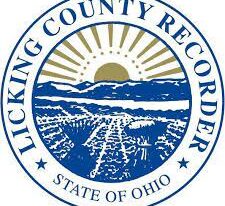Real Estate
The Licking County Auditor Impact on Local Economy and Development

When it comes to driving economic growth and development in a community, we often hear about the role of businesses, government policies, and even individual entrepreneurs. But there’s one unsung hero working behind the scenes, making sure everything runs smoothly and fairly – the Licking County Auditor!
You may be wondering, what exactly does a county auditor do? Well, get ready to have your mind blown as we dive into their crucial responsibilities and how they impact our local economy.
From managing public records to keeping an eye on property taxes, this dedicated professional is at the heart of it all. So let’s uncover their hidden superpowers and discover just how essential their work is for our beloved Licking County. Buckle up – it’s time for some auditing adventure!
Licking County Public Records and Forclosures
When it comes to buying or selling property in Licking County, having access to accurate and up-to-date public records is crucial. The Licking County Auditor’s office plays a vital role in providing these records, ensuring transparency and facilitating informed decisions.
Public records contain essential information about properties, including ownership details, tax assessments, and historical sales data. These documents are accessible to the public through various channels, such as online databases or physical files maintained by the auditor’s office.
In addition to serving as a resource for real estate transactions, Licking County public records also play a significant role in monitoring foreclosures. By keeping tabs on foreclosure filings and proceedings, potential buyers can stay informed about distressed properties that may be available at discounted prices.
Licking County Tax Parcel Viewer
In today’s fast-paced world, convenience is key. And when it comes to accessing information about properties in Licking County, Ohio, the Licking County Tax Parcel Viewer is your ultimate go-to resource!
This innovative online tool allows residents and potential investors to easily explore and gather crucial details about properties within the county. With just a few clicks, you can access information such as property boundaries, tax assessments, ownership history, and even aerial imagery.
Licking County Auditor’s Role in Local Economy
When it comes to the local economy, the Licking County Auditor plays a crucial role. With their expertise and knowledge, they contribute significantly to the growth and development of the community. By ensuring fair and accurate assessments of properties, they help maintain stability in property values.
Their role extends beyond just property assessments. The auditor also plays a key part in determining tax rates and collecting taxes. This revenue is essential for funding public services like schools, infrastructure projects, and emergency services that benefit everyone in the county.
Moreover, by providing transparent access to public records such as property transactions and foreclosures, the auditor promotes accountability within the real estate market. Potential buyers can make informed decisions based on this information, fostering a healthy environment for economic activity.
Licking County Auditor-Smith
When it comes to driving economic growth and development in Licking County, one name stands out – the Licking County Auditor-Smith. With years of experience and a keen eye for detail, Smith has played a significant role in shaping the local economy.
Smith’s dedication to transparency and efficiency is evident in their work. They have implemented innovative systems like OnTrac, which allows residents to easily access public records and property information online. This not only saves time but also encourages investment in the community.
But that’s not all! Smith understands the importance of accurate tax assessments for both homeowners and businesses. By utilizing advanced technology like the Tax Parcel Viewer, they ensure that everyone pays their fair share while avoiding unnecessary burdens on taxpayers.
In an interview with local media outlet ABC 6 News, Smith reassured homeowners that despite rising home values, property tax bills would not skyrocket. Their commitment to fair taxation ensures that residents can enjoy the benefits of a thriving real estate market without feeling overwhelmed by taxes.
Smith’s visionary approach extends beyond just numbers on paper; they genuinely care about fostering a prosperous community. In line with this goal, they actively collaborate with other county auditors across Ohio through organizations such as CAAO (County Auditors’ Association of Ohio). This exchange of ideas helps them stay updated on best practices and find new ways to enhance Licking County’s economic landscape.
With their tireless efforts and passion for progress, Licking County Auditor-Smith continues to make a lasting impact on our local economy. It is through leaders like them that communities thrive and grow towards an even brighter future!
Directory of County Auditors
The When it comes to the responsibilities and impact of county auditors, each county has its own dedicated official. The directory of county auditors serves as a valuable resource for locating these individuals across different regions. Let’s take a look at some notable counties and their respective auditors.
Hamilton County: A vibrant economic hub in Ohio, Hamilton County is home to an experienced auditor who plays a crucial role in ensuring fiscal transparency and accountability.
Hancock County: With its strong agricultural heritage, Hancock County relies on a diligent auditor to manage finances effectively and support local farmers and businesses.
Hardin County: In Hardin County, the auditor takes charge of various financial tasks, including property valuation, tax assessment, and budget management with utmost responsibility.
Harrison County: Nestled in eastern Ohio, Harrison County benefits from having an efficient auditor overseeing public funds distribution while promoting growth opportunities throughout the region.
Henry County: Henry County’s dedicated auditor works tirelessly to maintain accurate records and ensure that taxpayers’ money is utilized efficiently for community development initiatives.
Highland County: As an essential part of Highland’s governance system, the county auditor diligently manages financial operations while supporting local infrastructure projects that enhance residents’ quality of life.
Hocking County: From tracking property values to assessing taxes fairly, Hocking’s conscientious auditor helps sustain the economy by providing vital services that benefit both residents and businesses alike.
HolmesCounty:Agriculture-rich HolmesCounty counts on its knowledgeableauditor to oversee finances meticulouslyand help foster sustainable growth withinits tight-knit communities .
HuronCounty:Nestled along Lake Erie,HuronCountyreliesonitsdedicatedauditor totake careofbudgeting,taxvaluation,andfinancialreportingneedswhileensuringthefiscalintegrityofthecounty’sresources .
JacksonCounty:Servingasafiscalgatekeeper,Jackson’scompetentauditoriscommittedtoaccuratelymanagingpropertytaxassessmentandstrengtheningthelocal economythroughcarefulfinancialplanning.
Hamilton County
A Thriving Community
Nestled in the heart of Ohio, Hamilton County is a vibrant and bustling community. With its rich history and diverse population, this county offers something for everyone. From its thriving arts scene to its world-class dining options, Hamilton County has it all.
A Vibrant Arts Scene
One of the highlights of Hamilton County is its vibrant arts scene. Whether you’re a fan of theater, music, or visual arts, there’s no shortage of cultural experiences to indulge in. The county is home to numerous art galleries and theaters that showcase local talent as well as internationally acclaimed productions. No matter your artistic preference, you’ll find something that speaks to your soul here.
World-Class Dining
Food lovers rejoice! Hamilton County boasts an impressive culinary landscape with a wide range of dining options available. From trendy farm-to-table restaurants to classic steakhouses, there’s no shortage of delicious choices for every palate. Whether you’re craving international cuisine or comfort food with a modern twist, the county’s diverse culinary scene will leave you satisfied.
Harrison County
Nestled in the heart of Ohio lies a hidden gem – Harrison County. With its picturesque landscapes and charming small-town atmosphere, this county is a true delight for both residents and visitors alike.
Rich in history and natural beauty, Harrison County offers a wide range of activities for outdoor enthusiasts. From hiking through scenic trails to fishing in pristine lakes, there’s something here for everyone to enjoy.
But it’s not just the natural wonders that make Harrison County special. The community spirit and welcoming locals create a warm and inviting atmosphere that instantly makes you feel at home.
In addition to its breathtaking scenery, Harrison County also boasts a thriving arts scene. Local artists showcase their talent through captivating exhibits and performances, adding an artistic flair to the county’s already vibrant culture.
Henry County
Nestled in the heart of Ohio, Henry County captivates visitors with its charming rural beauty. With a population just shy of 30,000 residents, this picturesque county offers a peaceful escape from the hustle and bustle of city life.
From rolling farmlands to quaint small towns, Henry County boasts an idyllic landscape that will leave you breathless. Whether you’re exploring the historic streets of Napoleon or admiring the vast fields dotted with silos, there’s no shortage of natural beauty to discover here.
But Henry County isn’t just about its serene surroundings – it also has a thriving community filled with welcoming locals who are proud to call this place home. From lively festivals celebrating local traditions to friendly farmers’ markets offering fresh produce and homemade treats, there’s always something happening in Henry County.
Future CAAO Conferences
Looking ahead, the future of the Licking County Auditor’s office and its impact on local economy and development remains promising. As the county continues to experience growth and development, it is crucial for the auditor’s office to stay proactive in managing public records, tax parcels, and ensuring fair property assessments.
The County Auditors’ Association of Ohio (CAAO) plays a significant role in supporting auditors across the state by providing resources, training, and networking opportunities. Attending CAAO conferences can help our own Licking County Auditor stay up-to-date with best practices, new technologies, and industry trends.
These conferences bring together professionals from various counties who share their experiences and insights on how to effectively handle challenges related to property taxes, economic development initiatives, public records management systems, and more. By participating in these events, our auditor can gain valuable knowledge that will benefit Licking County as a whole.
In addition to attending conferences hosted by CAAO or other organizations within Ohio itself; there are also national conferences that provide an opportunity for auditors from different states to come together. These gatherings offer a broader perspective on various issues affecting auditors nationwide.
By staying engaged with these educational events and constantly seeking improvement in their processes; our Licking County Auditor can continue making a positive impact on local economy while fostering sustainable growth throughout the community.
Remember – The work of an auditor may often go unnoticed but it is indeed essential for maintaining transparency; promoting efficiency;and facilitating fair taxation policies. So let us appreciate their efforts!
Real Estate
Finding Apartments That Accept Evictions: Your Ultimate Guide

Introduction
Finding an apartment with a past eviction on your record can indeed be challenging, but it’s far from impossible. This detailed guide is designed to help you navigate the often tricky rental market and find apartments that accept evictions. With the right approach and strategies, you can successfully secure a rental property that meets your needs despite a previous eviction. Whether you’re dealing with a single eviction or a more complex rental history, this guide provides practical tips and resources to improve your chances of finding a suitable apartment and starting anew.
Understanding Your Rental History
Review Your Rental History
Before starting your search for a new apartment, it’s crucial to understand your rental history thoroughly. Check your records for any evictions or negative marks and gather all relevant documentation. This will help you be prepared for questions from potential landlords.
Assess Your Credit Report
Your credit report often includes rental history and eviction details. Obtain a copy from a major credit bureau and review it for accuracy. Correct any errors before applying for new rentals.
Research Second-Chance Apartments
What Are Second-Chance Apartments?
Second-chance apartments are rental properties managed by companies or landlords who are more lenient with applicants who have past evictions or poor credit histories. These apartments can offer a fresh start if you’re having trouble finding a place due to your past rental issues.
Finding Second-Chance Apartments
Search online for property management companies or rental agencies that specialize in second-chance housing. Websites and forums dedicated to these types of rentals can also be valuable resources.
Be Honest and Transparent
Disclose Your Eviction
When applying for an apartment, be upfront about your past eviction. Honesty is crucial in building trust with potential landlords and demonstrating that you are a responsible tenant.
Explain Your Situation
Prepare a brief explanation of the circumstances surrounding your eviction. Highlight any steps you’ve taken to rectify the situation and improve your financial stability.
Prepare a Strong Rental Application
Provide References
Strong references from previous landlords or employers can significantly bolster your application. Ask for letters of recommendation that speak to your reliability and character.
Show Proof of Income
Landlords want to ensure that you can afford the rent. Provide recent pay stubs, bank statements, or other proof of income to demonstrate your ability to make timely rent payments.
Write a Cover Letter
A well-written cover letter can make a difference. Explain your situation, express your commitment to being a good tenant, and provide context for your past eviction.
Offer a Larger Deposit
Why a Larger Deposit Helps
Offering a larger security deposit can provide landlords with added reassurance. It shows your commitment to maintaining the property and can offset their concerns about your past eviction.
Negotiating the Deposit
If a larger deposit is not feasible, negotiate with the landlord to find a compromise. Propose a smaller deposit with a higher rent payment or additional guarantees.
Consider Co-Signers
How a Co-Signer Can Help
A co-signer with a strong rental history and good credit can strengthen your application. This person agrees to take responsibility for the rent if you default, reducing the landlord’s risk.
Finding a Co-Signer
Choose someone who is willing to take on this responsibility and who has a solid financial background. Ensure they understand the commitment involved.
Look for Private Landlords
Benefits of Private Landlords
Private landlords often have more flexibility than large property management companies. They may be willing to consider your application on a case-by-case basis, especially if you present a compelling case.
How to Find Private Landlords
Use local classifieds, community boards, and networking to find private landlords who may be open to renting to individuals with past evictions.
Utilize Online Resources
Online Platforms for Finding Rentals
Several online platforms cater to individuals with past evictions. Websites like Craigslist, Facebook Marketplace, and specialized rental platforms can offer leads on suitable rentals.
Joining Online Forums and Groups
Engage in online forums and social media groups focused on rental housing. These communities can provide valuable insights and potential leads on available apartments.
Be Persistent and Patient
The Importance of Persistence
Finding an apartment with an eviction on your record may take time. Stay persistent, continue applying, and keep improving your application.
Managing Rejections
Rejections are a part of the process. Use them as learning opportunities and refine your approach based on feedback.
Avoiding Scams
Identifying Rental Scams
Be cautious of companies or landlords that promise guaranteed approval regardless of your eviction history but require upfront fees. Research these entities thoroughly before making any payments.
Protecting Yourself
Verify the legitimacy of rental services and landlords. Use trusted sources and avoid making payments until you are confident in the legitimacy of the offer.
Conclusion
Finding an apartment with a past eviction can be challenging, but with the right approach and persistence, it is possible. By understanding your rental history, researching second-chance apartments, being honest in your applications, and utilizing various resources, you can improve your chances of securing a rental that meets your needs.
FAQs
What are apartments that accept evictions?
Apartments that accept evictions are rental properties where landlords or property managers are willing to overlook past eviction records when considering a rental application. These apartments are often managed by second-chance rental companies or private landlords who offer more flexibility in their rental criteria.
Can I get an apartment with an eviction if I have a good income?
Yes, having a good income can help, but it might not be sufficient on its own. It’s crucial to address the eviction openly and provide strong references and proof of income.
Are there specific cities where finding an Apartments That Accept Evictions is easier?
Some cities have more lenient rental markets and more options for second-chance housing. Research local rental laws and resources in the area where you wish to move.
What should I include in a cover letter for my rental application?
Your cover letter should explain the circumstances of your eviction, highlight any positive changes you’ve made since then, and express your commitment to being a reliable tenant.
How can I avoid rental scams when searching for apartments?
Research potential landlords and rental services thoroughly. Be wary of companies that ask for large upfront fees and always verify the legitimacy of the rental offers before making any payments.
Real Estate
Top Real Estate Social Networks: Connect and Collaborate in 2024

Introduction
In today’s digital age, social networks are not just for connecting with friends and family; they are essential tools for professionals across various industries. For those in real estate, leveraging social networks can open up new opportunities, foster collaborations, and drive business growth. This article delves into the top real estate social networks you should consider in 2024 to enhance your networking and collaboration efforts.
Why Real Estate Professionals Need Social Networks

Building Professional Relationships
Social networks provide a platform for real estate professionals to connect with peers, clients, and industry leaders. These connections can lead to valuable partnerships and referrals.
Expanding Market Reach
Through social networks, real estate agents can reach a broader audience, showcasing their listings and expertise to potential buyers and investors worldwide.
Access to Market Insights
Social networks offer real-time updates and discussions about market trends, which can be invaluable for staying ahead in the competitive real estate industry.
Top Real Estate Social Networks in 2024

Overview
LinkedIn remains a leading platform for professional networking. It’s especially valuable for real estate professionals looking to connect with other industry experts and potential clients.
Features for Real Estate Professionals
- Networking Opportunities: Connect with industry leaders, potential clients, and partners.
- Content Sharing: Post updates about market trends, listings, and professional achievements.
- Groups and Forums: Join real estate groups to participate in discussions and share insights.
Overview
Facebook continues to be a powerful tool for real estate marketing and networking. With its vast user base, it provides multiple ways to engage with potential clients.
Features for Real Estate Professionals
- Business Pages: Create a professional page to showcase listings, client testimonials, and market updates.
- Groups: Join local real estate groups or create your own to engage with the community.
- Advertising: Use targeted ads to reach specific demographics and boost property visibility.
Overview
Instagram is perfect for visual storytelling and showcasing properties. Its image-centric platform helps real estate professionals highlight their listings effectively.
Features for Real Estate Professionals
- Visual Content: Share high-quality photos and videos of properties.
- Stories and Reels: Use these features to provide virtual tours and updates.
- Hashtags: Utilize relevant hashtags to increase the visibility of your posts.
Overview
Twitter offers real-time updates and a platform for engaging in industry conversations. It’s ideal for sharing news, insights, and quick updates.
Features for Real Estate Professionals
- Quick Updates: Post market news, property updates, and industry insights.
- Networking: Engage with industry hashtags and participate in real estate discussions.
- Direct Messaging: Connect with potential clients and partners through private messages.
BiggerPockets
Overview
BiggerPockets is a specialized network focused on real estate investing. It provides tools and resources tailored to real estate investors.
Features for Real Estate Professionals
- Forums: Participate in discussions about real estate investing and market trends.
- Tools and Calculators: Use tools for property analysis and investment planning.
- Networking: Connect with other investors and real estate professionals.
Real Estate Forums
Overview
Dedicated real estate forums offer in-depth discussions and resources for professionals in the industry. These forums are often niche and cater to specific aspects of real estate.
Features for Real Estate Professionals
- Industry Insights: Engage in discussions about market trends, best practices, and investment strategies.
- Expert Advice: Seek guidance from experienced professionals and industry experts.
- Community Support: Join a community of like-minded professionals for support and advice.
How to Maximize Your Presence on Real Estate Social Networks
Create a Professional Profile
Ensure your profiles on these networks are complete and professional. Include high-quality photos, detailed bios, and links to your website or portfolio.
Engage Regularly
Consistent engagement is key to building relationships. Share valuable content, participate in discussions, and respond to comments and messages.
Leverage Content Marketing
Use social networks to share informative and engaging content. This could include blog posts, market analyses, and property showcases.
Utilize Networking Features
Take advantage of networking features such as groups, forums, and direct messaging to connect with potential clients and industry peers.
Monitor and Analyze Performance
Use analytics tools provided by social networks to monitor your performance. Track engagement, reach, and other metrics to refine your strategy.
Conclusion
Social networks have become indispensable tools for real estate professionals in 2024. By leveraging platforms like LinkedIn, Facebook, Instagram, Twitter, BiggerPockets, and dedicated real estate forums, you can expand your reach, build valuable connections, and stay ahead in the competitive real estate market. Embrace these networks to enhance your professional presence and drive success in your real estate career.
FAQs
How can I use LinkedIn for real estate networking?
LinkedIn allows you to connect with industry professionals, join real estate groups, and share updates about your business and market trends.
What are the benefits of using Instagram for real estate marketing?
Instagram is ideal for showcasing property photos, sharing virtual tours through Stories and Reels, and increasing visibility with relevant hashtags.
How can Facebook Ads benefit my real estate business?
Facebook Ads allow you to target specific demographics, boosting the visibility of your property listings and reaching potential clients effectively.
What type of content should I post on Twitter for real estate?
Share quick updates, market news, and engage in industry conversations. Use Twitter to stay informed and connect with other professionals.
What is BiggerPockets and how can it help real estate investors?
BiggerPockets is a network focused on real estate investing, offering forums, tools, and resources for property analysis and investment planning.
Real Estate
10 Common Mistakes First-Time Homebuyers Should Avoid

Purchasing your inaugural home marks a thrilling milestone, yet it can also present a labyrinth of challenges fraught with potential missteps. From financial oversights to disregarding critical details, novice homebuyers frequently encounter errors that can yield enduring repercussions. To steer you through the process of acquiring your first property successfully, here are 10 prevalent blunders to sidestep, accompanied by thorough explanations to empower you to make well-informed decisions:
1. Insufficient Grasp of Your Financial Limits
Among the most pivotal missteps first-time homebuyers commit is inadequately comprehending their financial boundaries. Before initiating your search for a new home, ensure you allocate sufficient time to thoroughly assess your financial situation.
Delve into not only your existing income but also potential future changes, such as career advancements or expanding familial needs. Factor in all expenditures, encompassing utilities, insurance, and maintenance outlays, to ascertain the extent to which you can comfortably allocate funds toward a mortgage each month without overextending your resources.
2. Overlooking Mortgage Pre-Approval
Obtaining pre-approval for a mortgage is an essential prerequisite before initiating property exploration. Pre-approval provides a clear assessment of your borrowing capacity and demonstrates to sellers your sincere commitment as a potential buyer. Moreover, it streamlines your search by focusing solely on properties within your financial parameters, thus saving both time and frustration.
Failure to undertake this initial step can result in disappointment if you discover your dream home but encounter obstacles securing financing or become emotionally attached to a property beyond your financial reach. Securing an advantageous first-time buyer mortgage is imperative for novice homebuyers to establish a sturdy financial groundwork as they embark on their journey toward homeownership.
3. Disregarding Additional Financial Obligations
Beyond the sticker price of the dwelling, a myriad of supplementary costs demands consideration. Closing fees, property taxes, homeowners association dues (if pertinent), and ongoing upkeep charges can accrue swiftly.
Failure to account for these outlays may strain your financial stability and leave you ill-equipped to confront the genuine expenses entailed by homeownership. Construct a comprehensive budget encompassing all potential expenditures to ensure you are financially equipped to navigate the terrain of homeownership.
4. Fixating Solely on the Purchase Price
While the purchase amount holds significance, it should not monopolize your attention when contemplating a home purchase. Refrain from neglecting other pivotal factors such as neighborhood ambiance, educational district quality, proximity to amenities, and prospective resale value.
Opting for a locale and property features that resonate with your long-term aspirations can significantly enhance your contentment with your chosen domicile. Factor in your lifestyle preferences and future aspirations when assessing prospective properties to ensure they align harmoniously with your needs, transcending mere financial considerations.
5. Neglecting Comprehensive Home Inspections
A meticulous home inspection constitutes an imperative step in uncovering latent issues or potential deficiencies within the property. Neglecting this crucial step exposes you to unexpected financial setbacks in the future.
Investing in a professional home inspection serves to flag any potential concerns prior to finalizing the purchase. Despite initial costs, this prudent measure can yield substantial savings by preempting costly repairs or renovations in the future.
6. Overlooking Anticipated Future Needs
When contemplating your inaugural home purchase, it is imperative to factor in prospective future requirements and lifestyle modifications. Do you envision expanding your family? Contemplating a home-based career? Anticipating such developments and selecting a domicile conducive to accommodating your evolving circumstances can obviate the necessity for relocation in the foreseeable future.
Factors such as property size, bedroom and bathroom count, and potential for expansion or renovation should be scrutinized to ensure your chosen abode remains commensurate with your evolving requisites in the years ahead.
7. Underestimating the Magnitude of Maintenance Expenses
Homeownership entails an array of ongoing maintenance and repair obligations that may be unfamiliar to erstwhile renters. From routine upkeep to unforeseen repairs, it is imperative to earmark resources for these difficulties to avert financial strain. Allocating a segment of your budget toward maintenance and contingency reserves ensures you are equipped to preserve your dwelling in optimal condition.
8. Neglecting Due Diligence on Mortgage Alternatives
A common oversight among novice homebuyers is accepting the initial mortgage offer sans exploration of alternative options. Engage in thorough research of diverse mortgage products, interest rates, and terms to pinpoint the optimal fit for your financial profile.
Consulting with a mortgage broker can furnish invaluable guidance in navigating the labyrinthine intricacies of the lending realm and identifying prospective savings or incentives. By conducting a comprehensive survey of mortgage options, you stand poised to realize potential savings amounting to thousands of dollars over the mortgage’s duration.
9. Making Emotionally Driven Decisions
Procuring a home represents a monumental financial decision, often imbued with emotional undertones. During the homebuying odyssey, guard against allowing emotions to cloud your judgment.
Adhere steadfastly to your priorities, financial objectives, and the enduring implications of your choice, eschewing impulsive impulses engendered by transient emotions. Exercise judicious discretion in meticulously evaluating each property, scrutinizing its attributes and drawbacks with objectivity.
10. Forfeiting Professional Real Estate Guidance
While it is conceivable to procure a home sans real estate agent intervention, the expertise and advocacy of a seasoned professional can prove invaluable, particularly for neophyte buyers.
A proficient agent serves as a stalwart ally, adeptly shepherding you through the labyrinth of the homebuying continuum. They can adroitly negotiate on your behalf, proffer astute insights into the local market dynamics, and navigate potential pitfalls with dexterity.
Conclusion
Acquiring your first home is an exciting yet complex journey that requires careful planning and strategic decision-making. By avoiding common pitfalls and seeking guidance when needed, you can navigate the process successfully and set yourself up for long-term financial stability. Stay informed, be patient, and prioritize your financial well-being as you get on this significant milestone. With diligence and attention to detail, you can find the perfect home for you and your family while avoiding costly mistakes.
-

 Fashion2 years ago
Fashion2 years agoExploring Purenudism: Embracing Body Positivity and Freedom
-

 Shops1 year ago
Shops1 year agoStaples Store Hours: What Time Does Staples Open And Close?
-

 Shops2 years ago
Shops2 years agoWalmart Vision Center Hours
-

 Shops1 year ago
Shops1 year agoWalgreen Pharmacy Hours: What Time Does It Open & Close?
-

 Shops1 year ago
Shops1 year agoPublix Pharmacy Hours and Locations
-

 Entertainment2 years ago
Entertainment2 years agoThothub.lol: The Digital Realm of Entertainment
-

 Business2 years ago
Business2 years agoDesigner Clothing: Making a Statement
-

 Shops1 year ago
Shops1 year agoWalmart Deli Open & Close Hours
